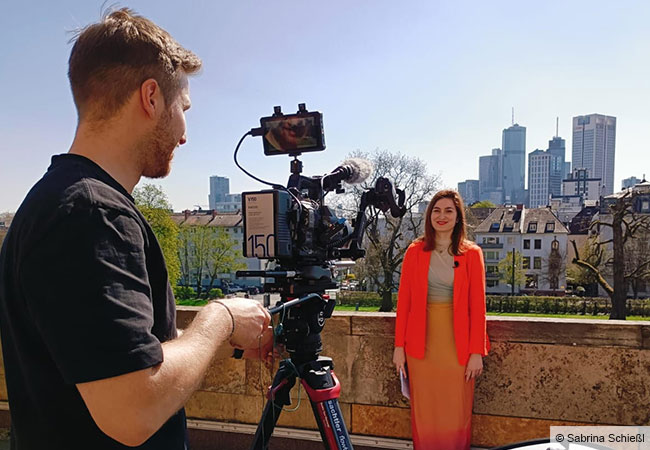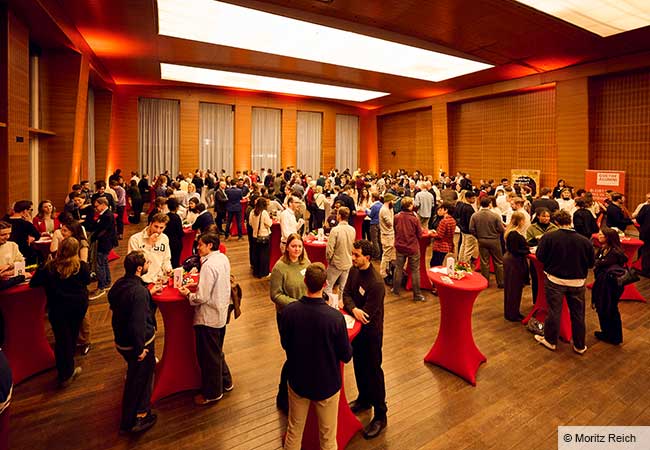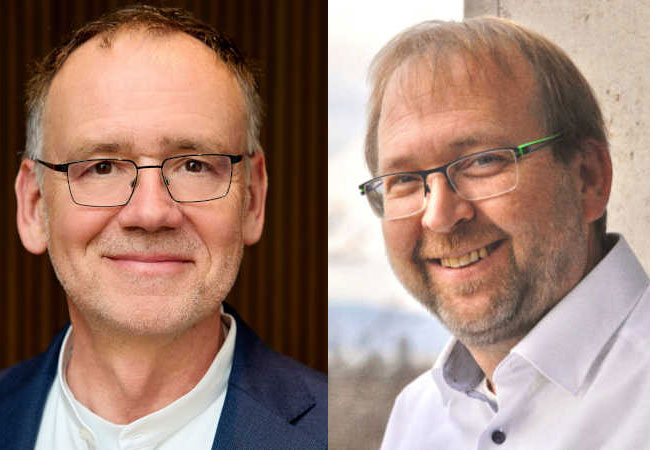How does negation work in language? And how are the relevant linguistic structures connected to perception in the brain? These are the types of questions posed within the framework of Collaborative Research Center 1629 „Negation in language and beyond“ (NegLaB) at Goethe University Frankfurt, funding for which the German Research Foundation (Deutsche Forschungsgemeinschaft, DFG) approved on November 24, 2023. Meanwhile, another CRC from the field of biochemistry, which deals with selective autophagy – a natural process by means of which cells can specifically dispose of defective or superfluous components – is entering its third funding phase. Both projects will initially receive (further) funding for four years. The DFG most recently approved a total of four CRC applications from Hessian universities, three among them continuations.
Prof. Bernhard Brüne, Vice President Research, Early Career Researchers and Transfer at Goethe University Frankfurt, congratulated the researchers involved in the successful application: „Anyone who establishes a major project like a Collaborative Research Center must have both creative and viable research ideas as well as a strong network. To discover new things about language and thinking, the new CRC 1629 not only makes use of Goethe University’s structures, and the combination of philology with philosophy and didactics. It also cooperates with partner universities in Göttingen and Tübingen. Aside that, I am of course delighted that CRC 1177 on autophagy has been extended. It has been extraordinarily productive over the past few years and promises significant findings in the future that can take medicine a big step forward. Thanks to this Collaborative Research Center, Frankfurt has become a national network center for autophagy research over the past eight years.“
CRC 1629 – Negation in language and beyond
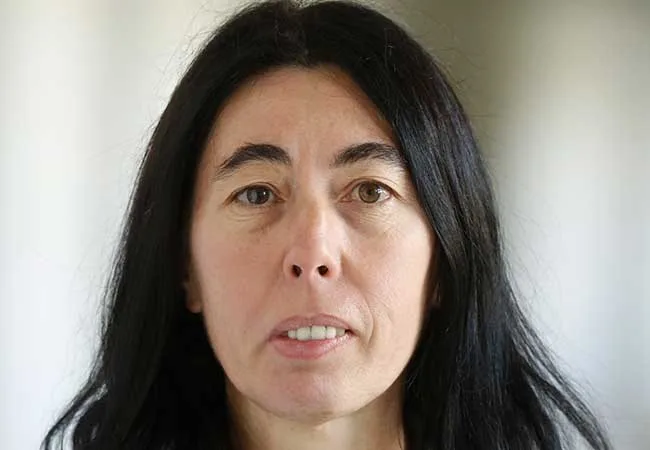
Negation is a fundamental and unique property of human language. It is firmly anchored in the grammatical system of all languages, albeit in different ways. Negation affects various areas of grammar as well as cognition as part of a complex system, which is reflected in the fact that although children produce negative utterances relatively early, it takes a much longer time to acquire all aspects of negation. Adults also find it more difficult to process negative sentences as compared to positive ones, supposedly due to the fact that the content of a positive sentence must first be elaborated before the meaning of its negation can be interpreted. CRC NegLaB sets out to explore how the expression of negation is cross-linguistically associated with grammatical and non-linguistic cognitive operations, something the researchers involved expect will lead to a better understanding of the connections between linguistic competence and general cognition. Individual projects address topics like the influences of negation on behavior, memory and attitude, the role of non-linguistic cognitive abilities in children’s negation processing, and the syntactic and morphological interactions of negation in a number of languages, ranging from Germanic and Romance to Bantu and Mabia. Several institutions at Goethe University Frankfurt are involved in the new CRC, including the Institutes of English and American Studies, Linguistics, Philosophy, Psycholinguistics and Didactics of the German Language, Romance Languages and Literatures, as well as the Faculty of Computer Science and Mathematics. Partners are the University of Göttingen’s Seminar of English Philology and the University of Tübingen’s Department of Psychology. A special feature of the project is its integrated research training group, where young academics will receive training for the academic and non-academic job market. CRC spokesperson is Prof. Dr. Cecilia Poletto. NegLaB will receive total funding of around €9.3 million for three years and nine months. Added to this is a 22 percent total lump sum for indirect costs incurred from the projects.
CRC 1177 – Molecular and Functional Characterization of Selective Autophagy
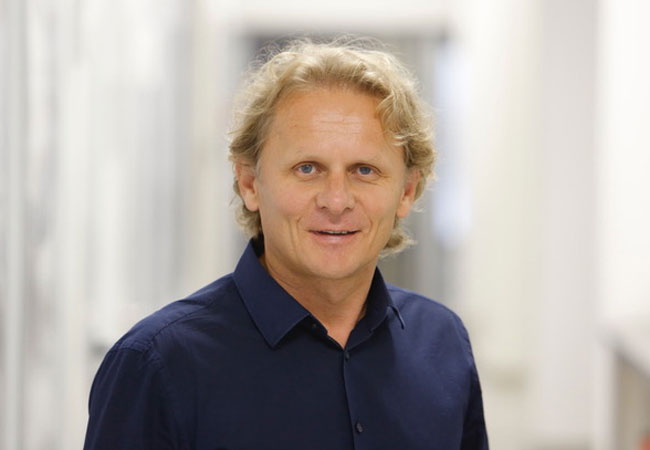
The CRC on selective autophagy was established in 2016. Led by Goethe University Frankfurt, it is now being extended for the second time. In addition to Goethe University, the universities of Mainz, Tübingen, Freiburg, Munich and Heidelberg, the Max Planck Institute of Biophysics and the Max Delbrück Center for Molecular Medicine are involved in this third funding period. Selective autophagy is part of the cellular waste disposal system, by means of which defective or otherwise harmful cellular components are degraded and disposed of. It plays a central role in maintaining cellular homeostasis and fulfills important functions related to aging and development. If this system does not function properly, this has an impact on the onset and progression of many diseases such as cancer, neurodegeneration and infections. The research consortium is investigating autophagy at a molecular and cellular level to discover how dysfunctions could be counteracted in the future. The consortium’s success is driven by the use of state-of-the-art technologies that have been consequently expanded and refined. The third funding period will focus on the role of autophagy in neurodegenerative diseases, immune defense and inflammation. Other areas of interest include processes such as membrane remodeling and the dynamic turnover of cell organelles. The promotion of early career scientists is of major importance to the consortium, and a research training group was established for this purpose in the first funding period, such that the then still young field of autophagy research could continue to grow. CRC 1177 spokesperson is Prof. Dr. Ivan Đikić. The center will receive total funding of around €13.5 million, including indirect costs.



